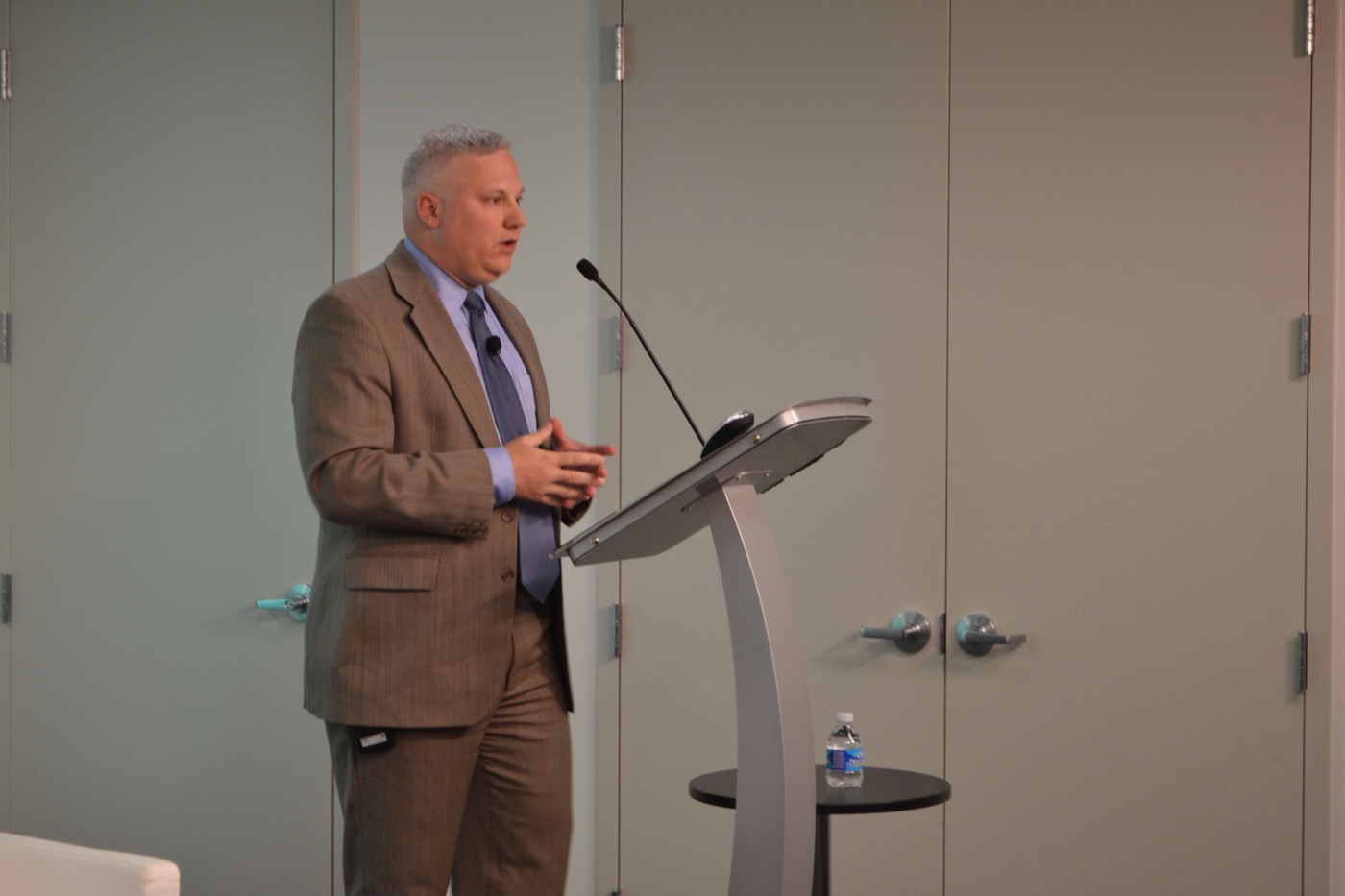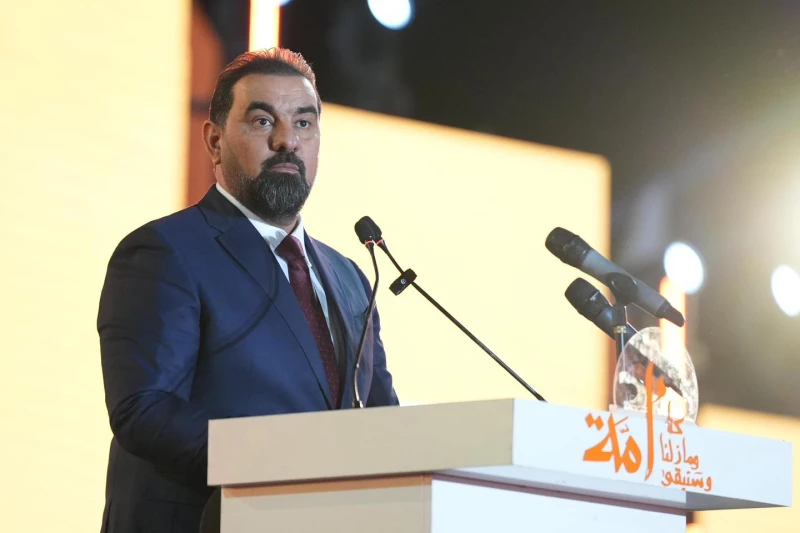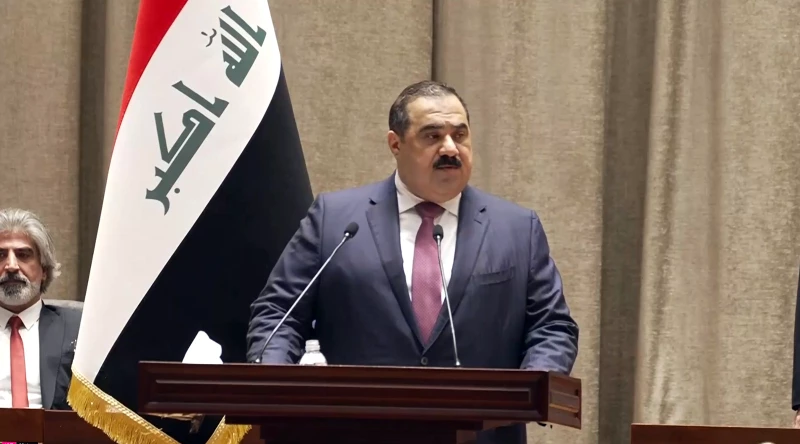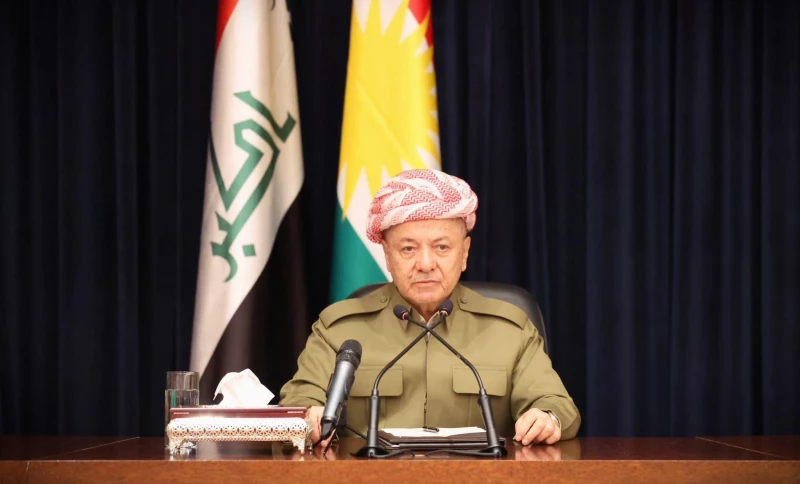DUHOK, Iraq - “The US administration,” former US Special Envoy to Syria Joel Rayburn told The New Region, “came into office not wanting to have to spend time – not just on Iraq and Syria but on the broader Middle East.”
“De-escalation was the watchword,” he stressed in speaking on the sidelines of the Middle East Peace and Security Forum on Nov. 21 in the Kurdistan Region of Iraq.
“But the trouble is,” he said, “they were running up against an Iran and a Supreme Leader intent on expanding.”
“So de-escalation is not possible in those conditions. What they really needed, if they really wanted to de-escalate, if they wanted to restore some calm across the region, they needed upfront to establish a deterrent for the Iranian regime. And, instead, they purposely didn’t establish a deterrent. They eroded deterrents,” he claimed.
“Almost as if they thought of this as a gesture of goodwill,” he opined, noting that the current US administration “froze enforcement of sanctions on the Iranian regime, the Assad regime. They revoked the terrorism designation of the Houthis.”
Messaging and ‘monsters’
“And then their messaging ran in the wrong direction,” Rayburn said. “It’s one thing to want to reduce your involvement in the Middle East. It’s another thing to telegraph that openly and lead your allies to hedge because they think that they can’t rely on you to perform a traditional security guarantor role. That’s a situation that they created and it has come to a head.”
On the Kurdistan Region of Iraq (KRI), Rayburn noted that “for quite a few years there has been a growth of pressure on the KRG [Kurdistan Regional Government] in particular that the US should have taken a proper approach to long before now.”
“But that’s just part of the parcel of the problem that the US faces across the region. The Quds Force and its proxies have turned into monsters in a number of different places,” the former US Special Envoy for Syria told The New Region.
In terms of what of deterrent he thinks the US should have established and whether this would have involved military action, Rayburn said that “it’s more about military posture.”
“It’s more about demonstrating that you place the sort of capabilities into the region to protect your interests if you have to,” he said. “Alongside that, aligning your economic involvement, your political pressure, your messaging – what you’re saying, which in this region is all important.”
Syrian instability
The “mandate that the US Defense Department has for the partnership with” the Kurdish-led Syrian Democratic Forces (SDF) in northeastern Syria, he said, is “an operational counterterrorism relationship – it’s a stabilization relationship in the aftermath of the destruction” of the territorial hold of the Islamic State (IS) across wide swathes of the region.
“There is no mandate for it to go beyond that and become a political relationship,” he stressed.
“It tends to bleed over in that direction sometimes,” he admitted, but “there has never been a mandate and there has never been an interest in Washington to do something like support another autonomous region” akin to the Kurdistan Region of Iraq “in northeast Syria”.
“What there has been - in the previous administration - was a commitment to trying to get to a political solution under UN Security Council Resolution 2254 and that northeast Syria should be fully represented in that,” he noted.
Major problems in the region, he said, include that “the Syrian regime is toxic, destabilizing, and murderous”, that it is not clear what approach the US and the international community will take towards Iran’s expanding of its power across the region, and the continuing conflict between Turkey and the outlawed Kurdistan Workers Party (PKK) without a “roadmap” for an end to it.
The PKK is considered a terrorist organization by the US, EU, and Turkey.
Rayburn said that the “US needs to try to get an international coalition to help to resolve these problems”.



 Facebook
Facebook
 LinkedIn
LinkedIn
 Telegram
Telegram
 X
X


